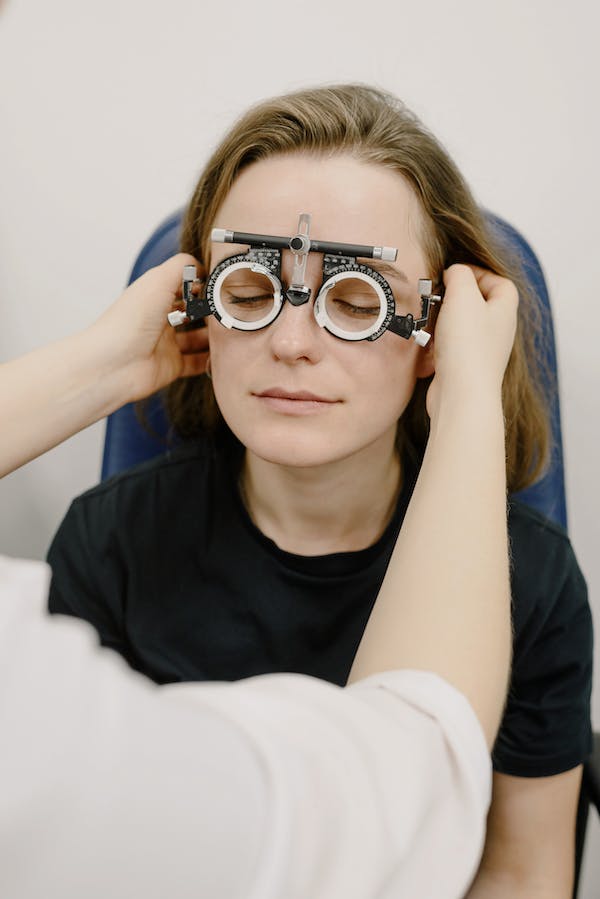What’s an Ophthalmologist?
by siteadmin

Ophthalmologists are specialists with extensive training who provide comprehensive eye care. Ophthalmologists diagnose and treat eye diseases or conditions as well as perform surgery to correct vision problems.
An ophthalmologist typically practices in an office equipped with equipment for examinations and tests. They may also work at hospitals or medical facilities for more complex imaging or exploratory procedures.
Ophthalmologists diagnose and treat eye diseases
Ophthalmologists are doctors of medicine (MDs or DOs) specializing in the diagnosis, treatment and prevention of eye conditions and injuries. Ophthalmologists use medications, laser treatments and surgical interventions as initial measures to manage their patients' eye issues effectively.
Ophthalmologists must complete four years of medical school and four-to-seven-year residency, where they learn to treat eye problems. Additionally, they must pass the United States Medical Licensing Examination.
They specialize in treating various eye conditions, including cataracts, glaucoma and macular degeneration. Additionally, they can prescribe eyeglasses and contact lenses, provide advice about vision loss prevention strategies as well as prescribe eyeglasses or contact lenses themselves.
If you suspect an eye condition, see an ophthalmologist immediately to diagnose disease at its earliest stages and potentially save your vision from irreparable harm. They are trained professionals that can detect disease before it leads to irreparable vision damage.
Opthalmologists also perform annual exams to monitor your eyes and vision health. A dilated exam, using drops to widen your pupils, is an integral part of their routine and includes tests such as visual acuity, how your pupils react to light and peripheral vision testing.
They prescribe eyeglasses and contact lenses
Eyeglasses and contact lenses are devices used to correct refractive errors such as myopia (nearsightedness), hyperopia (farsightedness) and astigmatism. By refractive light sharply onto your retina, they refract light into sharp focus for clear vision.
Your eye doctor will conduct an eye exam to identify the proper prescription to correct any vision problems you are having. A prescription is written as a numerical value known as diopters which indicates how your eyes curve in relation to one another.
When your prescription needs updating, an ophthalmologist can write you a new prescription based on measurements taken during your appointment. It's important that you get this update from them prior to purchasing any new glasses or contacts from stores.
Your contact lens prescription includes extra specifications that require measurements to fit them, so an ophthalmologist will take measurements of both curvature and width when fitting contacts to your eyes during an evaluation appointment. These measurements ensure a proper fit while also helping them identify which lenses best suit you as an individual.
They perform eye surgery
Eye surgery is a delicate procedure requiring highly trained surgeons. Ophthalmologists undergo twelve to thirteen years of training before becoming licensed to practice medicine and surgery and can perform a range of eye surgeries.
They offer treatment for diseases of the retina and vitreous gel-like substance surrounding your eye, such as retinal detachments and wet macular degeneration. Utilizing surgical techniques, they use them to correct various eye conditions including cataracts (removal of cloudy lenses), retinal detachments and wet macular degeneration.
Ophthalmologists often specialize in particular areas, such as pediatrics or glaucoma surgery. Subspecialists usually undergo an additional year of training (called fellowship ) after finishing their residency.
Ophthalmologists also provide various forms of laser vision correction procedures, such as LASIK. This procedure changes the shape of cornea to help improve nearsighted, farsighted or astigmatism vision issues.
They educate patients
Ophthalmologists educate their patients on how to effectively manage eye diseases, while providing information regarding treatment options. They may offer insights as to why some therapies may work better than others, or recommend changes in medication or lifestyle choices.
Ophthalmologists typically possess either a Doctorate of Medicine (MD) or Osteopathic Medicine (DO). To become one, one must attend medical school before undertaking a residency program that involves internships and training programs.
Ophthalmologists specialize in all areas of eye care during their studies. This includes studying disease progression, risk factors and how the body functions so as to prescribe appropriate treatments. Furthermore, they undergo training on surgical procedures like cataract and glaucoma surgery.
Nuvision Centers – Ironwood Eye Care – Dr. Nha Cao and Dr. Allison Wooten
https://www.nuvisioncenters.com/
Ophthalmologists are specialists with extensive training who provide comprehensive eye care. Ophthalmologists diagnose and treat eye diseases or conditions as well as perform surgery to correct vision problems. An ophthalmologist typically practices in an office equipped with equipment for examinations and tests. They may also work at hospitals or medical facilities for more complex imaging…
Recent Posts
- Lawn Care Spring Branch Advocates for Property Care: Combatting Weed Growth and Preserving Curb Appeal
- Lawn Care Spring Branch Advocates for Property Care: Combatting Weed Growth and Preserving Curb Appeal
- Lawn Care Spring Branch Advocates for Property Care: Combatting Weed Growth and Preserving Curb Appeal
- Sierra Canine: California’s Premier Service Dog Training Provider
- Expert Cleaners Lexington Shares Essential Tips for Properly Cleaning Hardwood Floors
